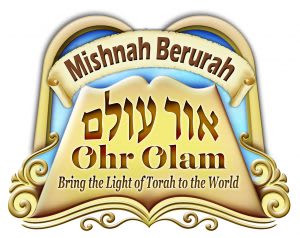Pouring Hot Water into a Thermos on Shabbos

Question: Is it permitted to pour hot water from an urn into a thermos bottle on Shabbos?
Discussion: At first glance, it would appear that pouring hot water from an urn into a thermos would be forbidden because of the Rabbinic injunction of hatmanah, which prohibits insulating any hot food item on Shabbos, even if the insulation will merely maintain the present heat level and not intensify it. A thermos bottle is, by definition, an insulated vessel which maintains the heat of the liquid poured into it, so using it could be considered a violation of hatmanah. Indeed, a minority view advises against using a thermos on Shabbos for this reason.[1]
But most contemporary poskim maintain that pouring hot water into a thermos is not a violation of hatmanah and is permitted. This lenient view is based on the ruling of the Shulchan Aruch that hatmanah is forbidden only in a keli rishon, i.e., the vessel in which the food was cooked. Once food or water is transferred into a second utensil, a keli sheini, the prohibition of hatmanah no longer applies. Since a thermos bottle is a keli sheini, there is no prohibition of hatmanah.[2]
A further argument to permit using a thermos is based on yet another ruling of the Shulchan Aruch, that hatmanah is prohibited only when insulating with something which serves primarily to insulate the food and retain its heat.[3] Covering a pot with its cover, however, which serves also to protect the food from rodents, contamination, or spillage, is permitted; Chazal did not include a pot cover, or anything else which serves so basic a purpose, in the prohibition of hatmanah, even though it also retains the heat of the food. It follows, therefore, that one may pour water into a thermos, since no insulation is taking place until the cap is screwed on. Screwing on the cap is permitted because it serves also the basic function of a pot cover, to prevent dirt and spillage from ruining the contents of the thermos.[4]
[1] See Levushei Mordechai 2:55; Toras Chayim (Zonnenfeld), pg. 65; Shevet ha-Levi 1:93
[2] See Chazon Ish, O.C. 37:32; Igros Moshe, O.C. 1:95; Chelkas Yaakov 4:16; Minchas Yitzchak 4:44-22; Shulchan Shelomo 257:12; b’Tzeil ha-Chochmah 2:74; Tzitz Eliezer 11:29; Chazon Ovadyah, Shabbos, vol. 1, pg. 74; Shemiras Shabbos k’Hilchasah 1:70.
[3] 257:2.
[4] Igros Moshe, O.C. 1:95.
